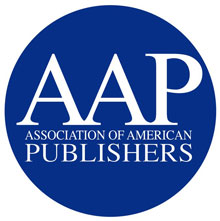June 13, 2022
Statement From Maria A. Pallante, President and CEO of the Association of American Publishers, Regarding Final Copyright Decision in AAP. v Frosh

“Today the United States District Court for the District of Maryland issued an unequivocal, final ruling in the case of Association of American Publishers v. Brian Frosh in AAP’s favor. In so ruling, the Court reiterated that the Maryland Act is unconstitutional because it “conflicts with and is preempted by the Copyright Act” and “stands as an obstacle to the accomplishment and execution of the full purpose and objectives of Congress.”
“We thank Judge Deborah L. Boardman for delivering a clear decision that protects the exclusive rights that are the basis of the United States Copyright Act and the means by which authors and publishers make so many intellectual and economic contributions to society and the long-term public interest. The ruling underscores the fundamental legal tenet that was never in doubt to those who respect and rely upon our copyright system, and which Judge Boardman stated succinctly in her February analysis: it ‘is only through the protection of copyright that books and other creative works may be generated and distributed at all.’
“As AAP’s lawsuit explained in great detail, Maryland enacted a shadow copyright law that would have forced authors and publishers to transmit literary works to public libraries within its borders according to regulated terms imposed by the state. The encroachment was astonishing for its direct conflict with two centuries of federal law and its upheaval of an Internet economy in which authors, artists, publishers, and producers from around the world make their intellectual property available to consumers through a plethora of innovative formats and access models that also include more than a half a billion digital loans for library patrons in the United States alone. Every day, thanks to the protections and reciprocity afforded by international treaties, such transactions are carried out seamlessly and rapidly across borders and permit the incredible innovation of home browsing.
“Today’s decisive ruling, combined with Governor Kathy Hochul’s December, 2021 veto of a nearly identical bill in New York on constitutional grounds, sends a two-fold message to other legislatures being similarly lobbied: there is nothing judicious about undermining authors or the viability of an independent publishing industry.”
Mary Rasenberger, CEO of the Authors Guild also had this to say:
“We congratulate the AAP on its victory against Maryland’s misguided mandatory ebook and audiobook licensing law, which was a wholly unwarranted rebuke of authors’ exclusive rights under the Constitution and federal copyright law to decide the terms on which they allow others to use their works. What’s more, this unconstitutional encroachment was not premised on any demonstrable need, as the vast majority of publishers large and small already license their ebooks and audiobooks to libraries, and authors want their books to be in libraries. The Authors Guild has long been a champion of increasing funding to libraries so they can purchase more digital licenses they need to serve their patrons and communities – a far better method of ensuring libraries can acquire robust collections than controlling ebook and audiobook prices. Price regulation is a form of regulation that is very rarely applied in this country and for good reason; in this case it would undermine the value of literary works and the ecosystem that ensures that authors and publishers can keep publishing great books.”
